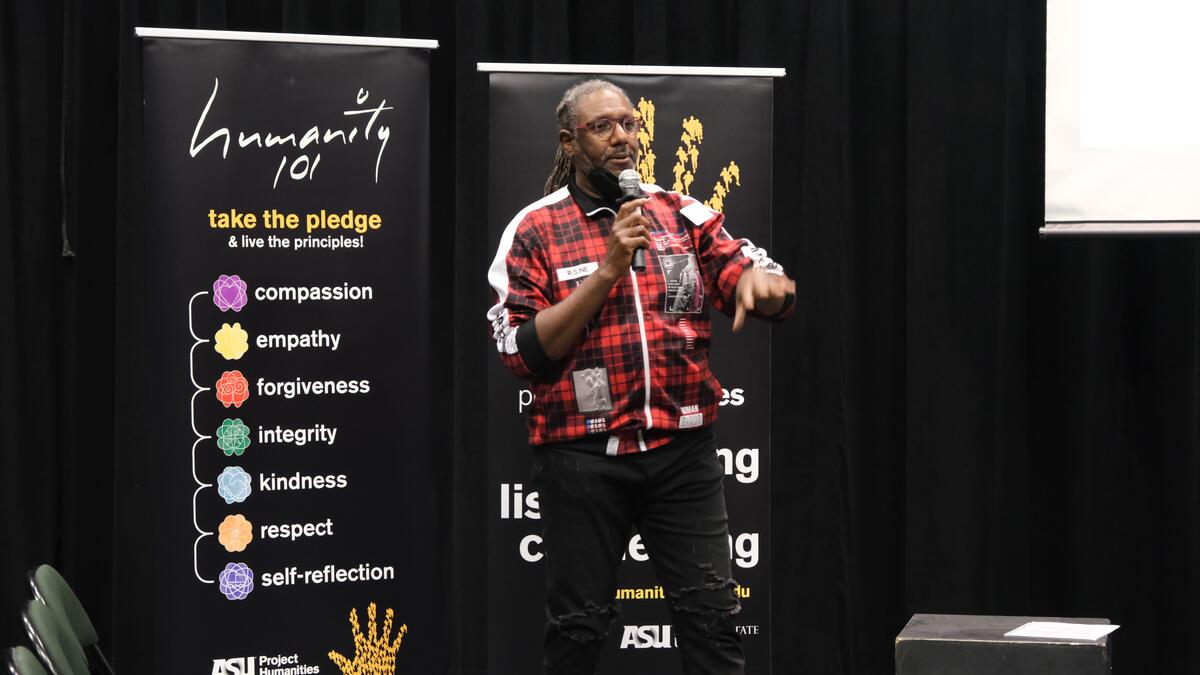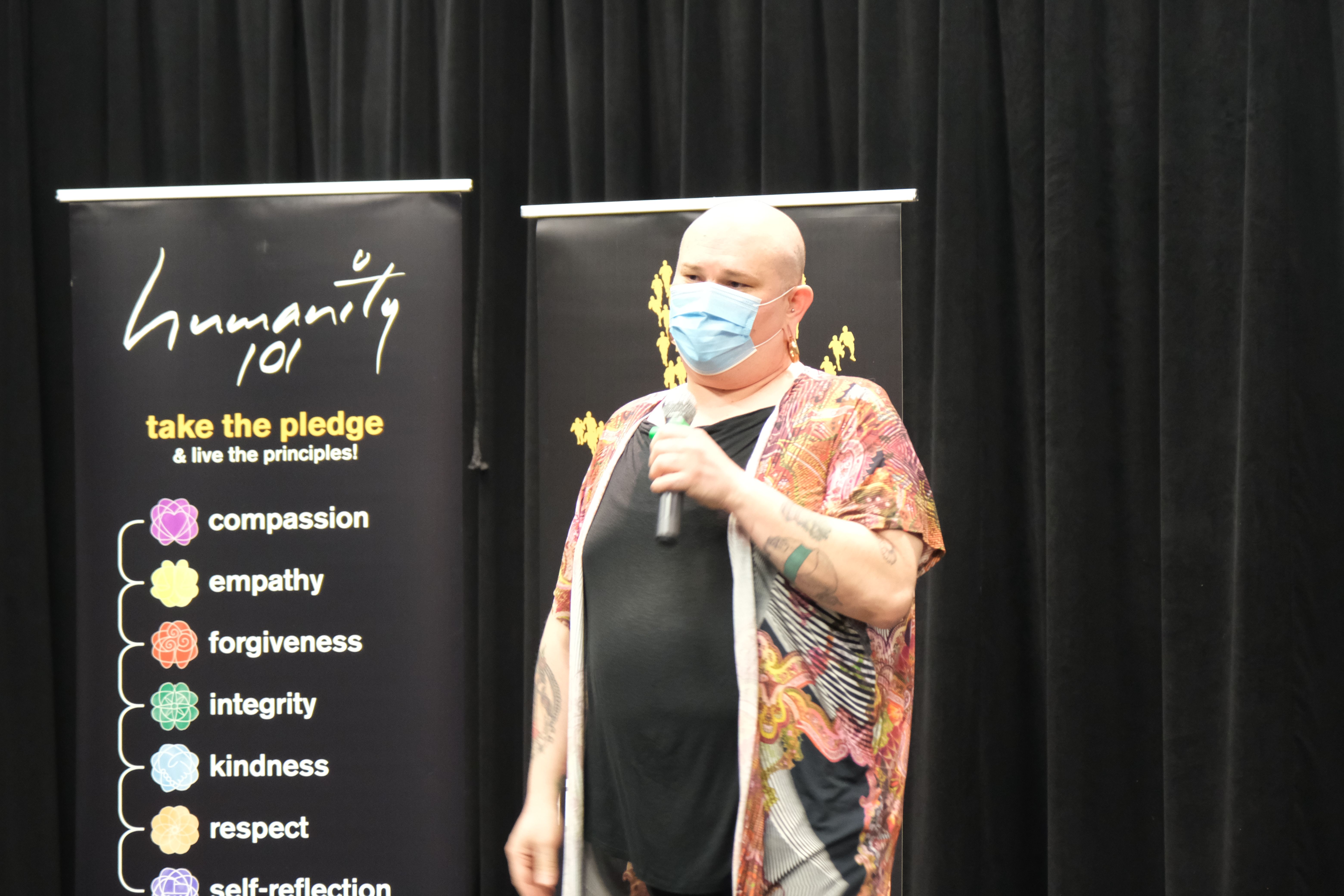ASU workshop focuses on power, politics of public restroom design

Neal A. Lester, Project Humanities founding director, speaks during the “From Bathrooms to Restrooms" lecture on March 29.
The Hugh Downs School of Human Communication recently partnered with Arizona State University’s Project Humanities for a workshop to imagine architectural designs that acknowledge the common discomfort with the current designs of many public restrooms.
“From Bathrooms to Restrooms: When the Private Becomes Public," held March 29 in Tempe, featured discussion, storytelling and problem-solving to create inclusive and dignified public bathroom spaces for all community members at ASU and beyond.
“Inclusive restrooms are not just important to transgender and nonbinary people,” said Rae Macías, the program coordinator at Project Humanities. “They can benefit everyone, people with larger bodies, families, people with disabilities, caregivers, people with anxiety and the list continues. It has been far too long that architects and interior designers have not had inclusivity in mind.”
Attendees shared personal experiences while building community and compassion for others.
Assistant Professor Loretta LeMaster, who researches queer and trans life, said the goal of the workshop was to open larger conversations across campus and in the community on bathrooms.
“The other reason they/we are doing this is precisely because this is a growing issue in the state and across the U.S. with very little public discussion that does not simply attack trans and gender-expansive people,” LeMaster said.
“As of this writing, there have been 492 bills targeting trans people (largely youths) proposed across 47 states in 2023 so far. Of those, 25 have passed, 43 have failed, while 424 remain active.”
Assistant Professor Loretta LeMaster
LeMaster said the common thread across all these bills is that they restrict and bar transgender, nonbinary and other gender-expansive people from participating in public life.
LeMaster was joined by graduate students Annika Espinoza, Blake Harms and Pablo Ramirez to lead participants through a performative dialogue that created insightful discoveries.
In their small group exercises, LeMaster invited participants to reflect on common feelings they experience when thinking about or using public restrooms.
Participants then explored their different emotional responses as a common point of connection to engage in meaningful conversation about the collective discomfort with public restrooms.
“While we cannot realistically restructure every restroom in the U.S., we can start by choosing to acknowledge various gender identities and sexes,” Macías said.
More Arts, humanities and education

ASU's Pen Project helps unlock writing talent for inmates
It’s a typical Monday afternoon and Lance Graham is on his way to the Arizona State Prison in Goodyear.It’s a familiar scene.…

Phoenix civil rights activists highlighted in ASU professor’s latest book
As Phoenix began to grow following WWII, residents from other parts of the country moving to the area often brought with them Jim…

Happy mistake: Computer error brings ASU Online, on-campus students together to break new ground in research
Every Thursday, a large group of students gathers in the Teotihuacan Research Laboratory (TeoLab) in the basement of the…
